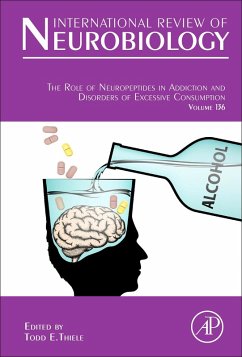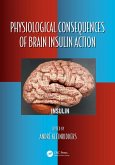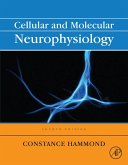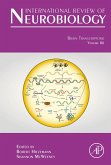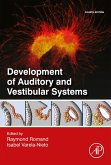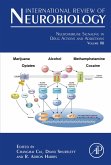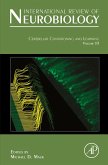The Role of Neuropeptides in Addiction and Disorders of Excessive Consumption, Volume 136 in the International Review of Neurobiology series, provides an overview of the top candidate neuropeptides in the modulation of alcohol and drug abuse, also covering eating disorders and obesity. Topics covered in this latest release include Corticotropin Releasing Factor (CRF) and Addictive Behaviors, Dynorphin/Kappa Opioid Receptor Signaling in Pre-clinical Models of Alcohol, Drug, and Food Addiction, The Role of Ghrelin Signaling in Additive Behaviors, The Role of the Melanocortin System in Drug and Eating Disorders, Substance P and the Neurokinin-1 Receptor: The New CRH, and the Role of Neuropeptide Y (NPY) in Drug and Eating Disorders.
The book uniquely highlights the overlapping central mechanisms that contribute to both drug and alcohol abuse and eating disorders.
The book uniquely highlights the overlapping central mechanisms that contribute to both drug and alcohol abuse and eating disorders.
- Presents a recent overview of some of the top candidate neuropeptides in the modulation of alcohol and drug abuse, and in eating disorders and obesity
- Highlights the overlapping central mechanisms that contribute to both drug and alcohol abuse and eating disorders
- Contains chapters that focus on a specific neuropeptide
Dieser Download kann aus rechtlichen Gründen nur mit Rechnungsadresse in A, B, BG, CY, CZ, D, DK, EW, E, FIN, F, GR, HR, H, IRL, I, LT, L, LR, M, NL, PL, P, R, S, SLO, SK ausgeliefert werden.

